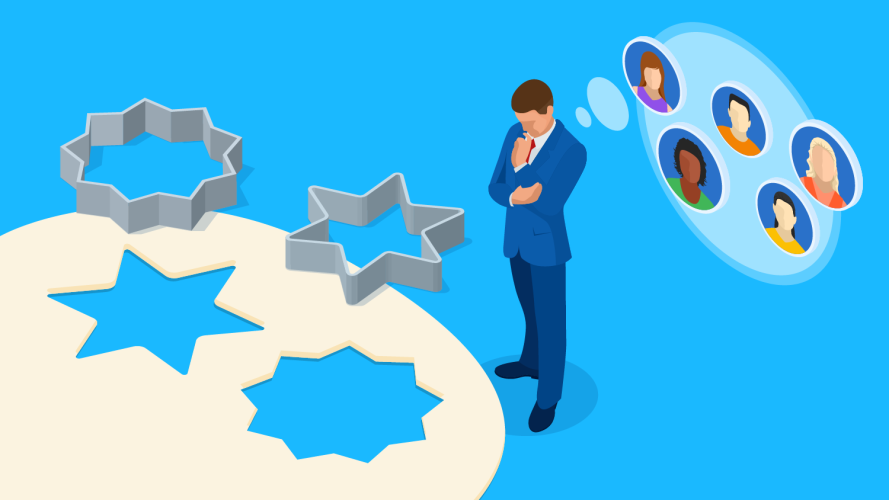How can AI help me? Whether they are willing to admit it or not, that’s the burning question many B2B marketers have in their minds. B2B marketers are under constant pressure to deliver more with less. They’re tasked with streamlining processes, prioritizing leads accurately, and measuring campaign performance with precision. It’s a tall order. While traditional marketing tactics still hold value, this increasing complexity demands innovative B2B marketing solutions. AI promises to make life easier when it comes to these challenges.
But how do B2B marketers get started with using AI in their marketing strategies? According to our State of Marketing report, taking advantage of AI is marketers’ biggest priority — and biggest challenge. Only 32% of marketing organizations have fully implemented AI in their workflows. It might seem like a complex and daunting task, but it doesn’t have to be.
Here are three practical B2B marketing solutions to make AI work for you.
What you’ll learn
- B2B marketing solution 1: Send emails when recipients are most likely to interact
- B2B marketing solution 2: Boost conversions with first-party data
- B2B marketing solution 3: Increase sales with key account engagement
B2B marketing solution 1: Send emails when recipients are most likely to interact
Sending emails at the right time is crucial for B2B marketers. But figuring out when exactly to send isn’t easy. It’s more than just picking a good day and time – it’s about understanding when each individual customer is most likely to engage. What works for one person might not work for another.
Imagine being able to send each email when the recipient is most likely to open and read it. That’s where AI comes in. By understanding how people interact with emails, AI can predict the best time to send each message to each individual, ensuring more people will see your emails and be interested in what you have to say.
What can AI do for you?
Salesforce’s Einstein technology can analyze customer data to predict the best moment to send each email. Let’s break down how:
- Analyze engagement patterns. Einstein tracks individual recipient behavior, such as email opens, clicks, and website visits.
- Identify optimal times. Based on this data, Einstein determines the best time of day and day of the week for each recipient to receive emails.
- Personalize send times. Einstein ensures that emails are delivered at the optimal time for each individual recipient, increasing the likelihood of engagement.
B2B marketing solution 2: Boost conversions with first-party data
In B2B marketing, it’s important to know which leads are most likely to become customers. Attaching a number to each lead based on their engagement is called “lead scoring.” Traditionally, scoring leads has been time-consuming and labor-intensive, requiring people to look at lots of different information. However, AI has made it a more efficient and effective process.
AI can automatically analyze customer data, like where a lead lives, what company they work for, and how they interact with your website. Using this information, it can predict which leads are most likely to buy your product or service. This helps B2B marketers focus their time and energy on the leads that are most likely to convert into customers, allocate resources effectively, and ultimately drive higher conversion rates.
What can AI do for you?
When evaluating how AI can boost conversions, consider these three steps:
- Identify patterns. Einstein looks for trends in customer behavior, such as website visits, email interactions, and content downloads.
- Compare past data. It then compares these patterns to historical data on converted leads to identify similarities and predict future conversions.
- Predict lead conversion. By using both Lead Score and Behavior Score, Einstein provides a comprehensive assessment of a lead’s potential to convert. The lead score evaluates demographic and firmographic data to predict conversion based on historical trends, while the behavior score analyzes real-time interactions to gauge current interest and engagement levels.
B2B marketing solution 3: Increase sales with key account engagement
After a lead conversion, B2B marketers can further help sales by building strong relationships with the most important customers, or key accounts. Here, AI becomes a relationship management tool, providing companies with the resources to speak directly to the needs of these customers.
One of the most significant advantages of AI in key account engagement is its ability to analyze vast amounts of data and extract meaningful insights to better understand your customers. AI-powered analytics can identify key trends, patterns, and preferences within your customer base, allowing B2B marketers to tailor messaging and offers with topics that resonate. For example, AI can identify that a B2B software company’s key account in the healthcare industry is increasingly interested in data privacy solutions, allowing the company to tailor its marketing messaging and product offerings accordingly.
AI can also help you automate many of the time-consuming tasks involved in managing key accounts. This means your team can spend more time building relationships and less time on manual labor. AI can schedule meetings, draft follow-up emails, and track customer interactions. This not only improves efficiency but also ensures that your team is always on top of their game when interacting with key accounts.
What can AI do for you?
Einstein provides B2B marketers with the insights and capabilities needed to build stronger relationships with key accounts, increase customer satisfaction, and drive significant revenue growth. Here’s how:
- Identify and understand high-value accounts. Einstein analyzes customer data to pinpoint accounts with the greatest revenue potential based on factors like size, industry, and engagement levels.
- Tailor messaging. Einstein creates personalized messages that address specific needs and interests of key accounts at the optimal times, drawing from data on their preferences, pain points, and recent interactions.
- Track and predict engagement. Einstein monitors key account interactions, such as email opens, clicks, and meeting attendance, to gauge the effectiveness of engagement efforts. It then uses this data to forecast future customer behavior, allowing B2B companies to anticipate challenges and opportunities.
So, how can you make AI work for you? The key is to start small and focus on areas where it can provide the most significant impact. AI is no longer just a buzzword, and it’s certainly not a human replacement. It’s a powerful B2B marketing solution that can revolutionize the way you work and the impact you have on your customers.
Upgrade your B2B marketing
Want to generate more leads and grow revenue? Marketing Cloud Account Engagement brings unified data and trusted AI together on the only platform that connects entire revenue teams.

































